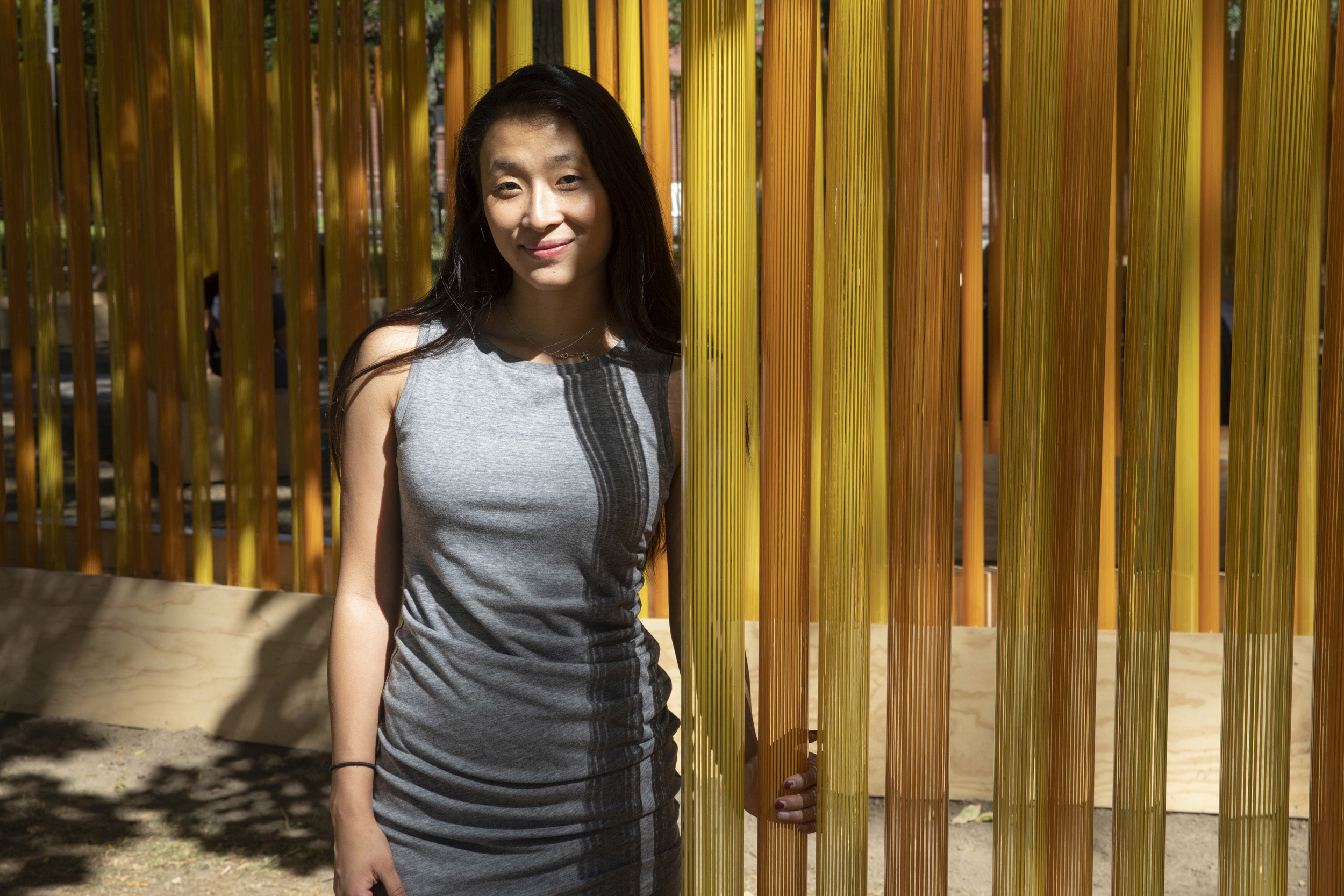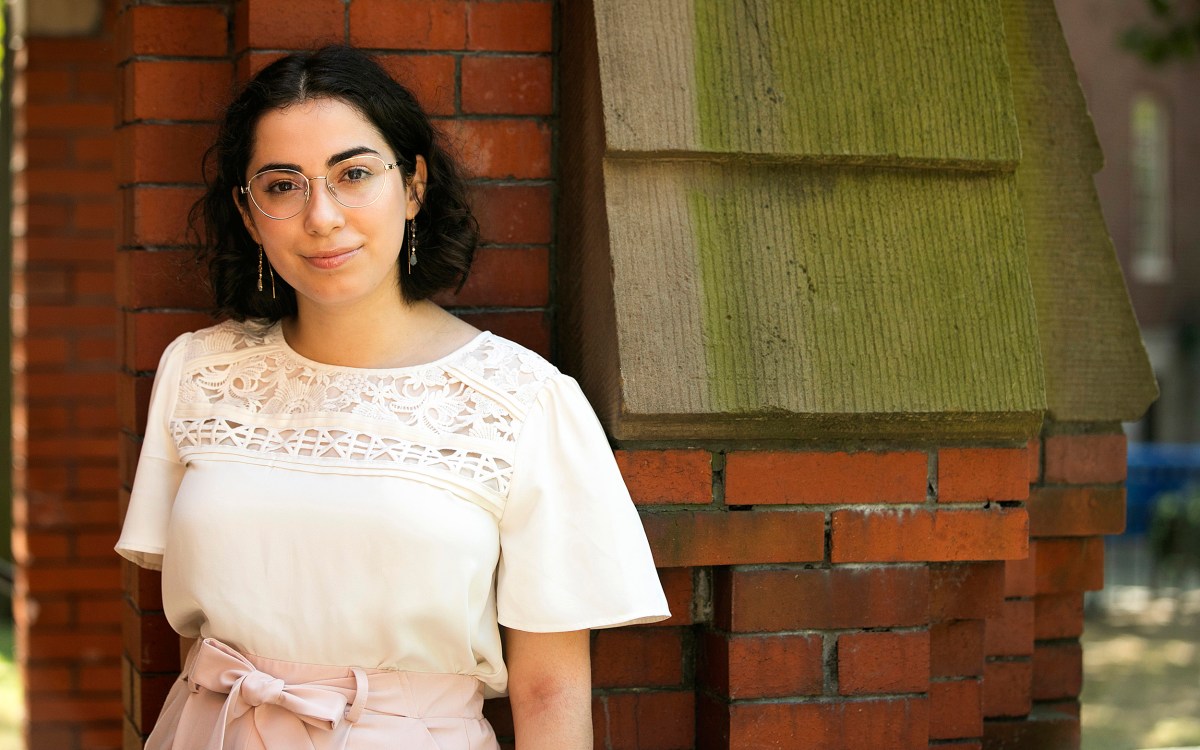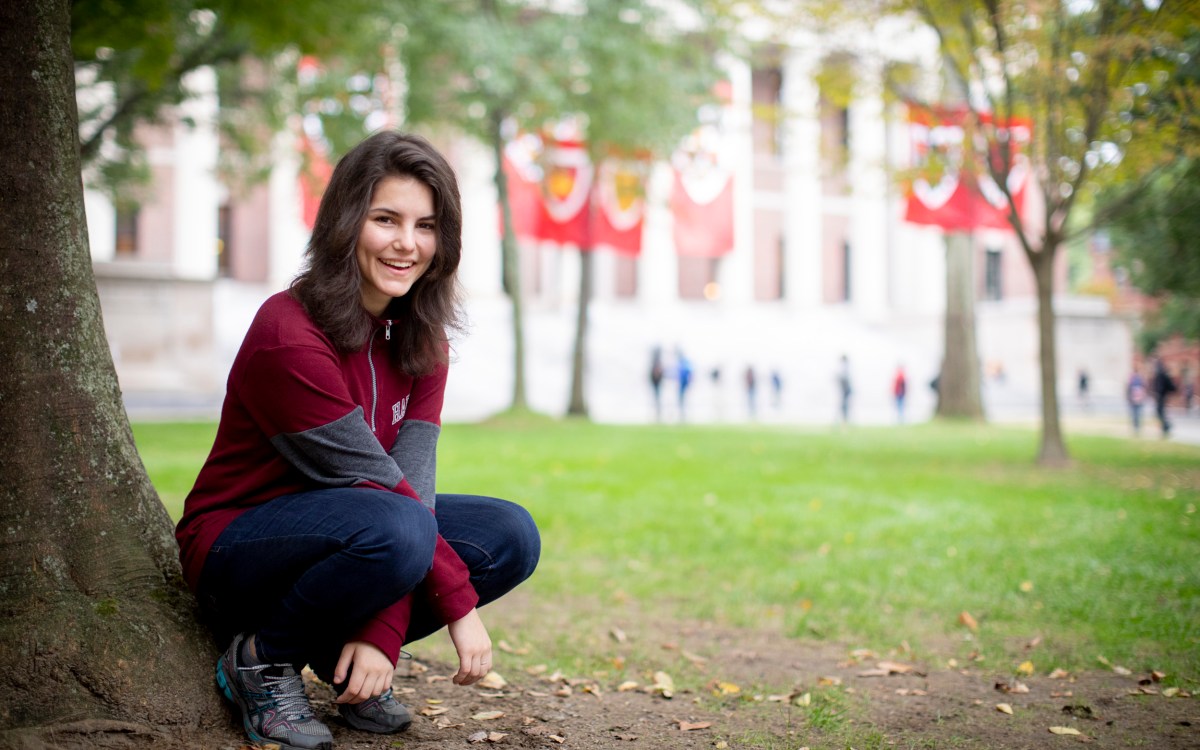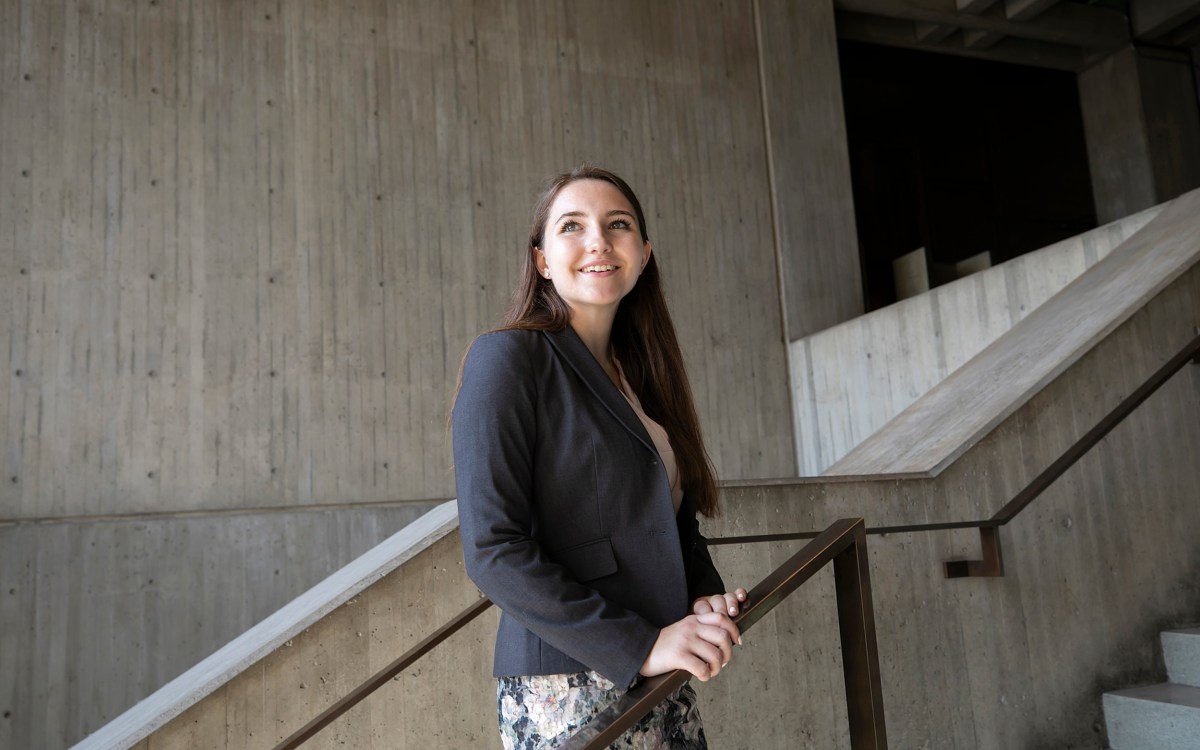
“I was writing it for all the little sisters out there, for my own sisters, and for myself,” says Nadya Okamoto about her book “Period Power: A Manifesto for the Menstrual Movement.”
Jon Chase/Harvard Staff Photographer
Student pens manifesto on menstruation
Nadya Okamoto’s nonprofit distributes menstrual products to women in need, and her new book offers a strategy for more openness
For Nadya Okamoto ’20, there has rarely been a time when life wasn’t unsteady.
Whether living with friends in high school during a time of financial instability for her family or amid her non-stop multitasking as a student/social entrepreneur/public speaker, the junior from Portland, Ore., is relentlessly searching for balance.
“I’m a work-hard-play-hard kind of person,” said Okamoto. “People assume because I’m Asian that I have a ‘tiger mother,’ but that’s not the case. I have no pressure from my mom around school or academics. She just wants me to have mindfulness in my life and follow my passions.”
The demands of co-founding PERIOD. The Menstrual Movement in high school, running for public office as a first-year, and constant speaking engagements kept Okamoto, 20, off campus as much as on during her first year at Harvard. Since founding PERIOD in 2014, Okamoto has helped expand the nonprofit to more than 230 campus chapters around the nation and abroad. It has distributed enough products for more than 380,000 periods to those in need. In addition to her academic and entrepreneurial lives, she also made an unsuccessful run for Cambridge City Council last year, and signed a book deal for “Period Power: A Manifesto for the Menstrual Movement,” which just came out.
“We both had books in the works at Simon & Schuster,” said a bemused Jonathan Hansen, a senior lecturer on social studies who taught Okamoto in Social Studies 10. “While I was writing my biography on Fidel Castro, she was working on ‘Period Power.’ Nadya faced a tight window. My book was overdue. I could relate to the pressure.”
Okamoto, who was on full financial aid for her first two years of school, wrote much of “Period Power” at Hemenway Gym and the Schlesinger Library, before finishing it during last year’s Wintersession.
“I would put Post-its all over my stair climber with my headphones, and start talking into my recorder and then transcribe it,” she said. “I was writing it for all the little sisters out there, for my own sisters, and for myself.”
Inspiring Okamoto to activism was a period without a home of her own. She was 16 in 2014 when financial insecurity set in. Though it was temporary, she met homeless women during that time who were using toilet paper, newspaper, and cardboard to meet their menstruation needs.
“There was a never-ending cycle of organizations not prioritizing menstrual hygiene, and thus not feeling any need to invest in tampons and pads. On the other side, homeless menstruators did not feel comfortable advocating for their menstrual needs, because menstruation is something that most want to hide,” wrote Okamoto in “Period Power.”
Since founding PERIOD in 2014, Okamoto has helped expand the nonprofit to more than 230 campus chapters around the nation and abroad. It has distributed enough products for more than 380,000 periods to those in need.
“There’s a lot of talk of altruism in this generation, but Nadya is more than talk,” said Hansen, noting that her sense of humor matches her activism. “One day she walked into class with cookies in the shape of tampons and all types of contraception. We discussed Kant’s ‘Critique of Pure Reason’ while eating IUDs.”
Hansen said Okamoto “fit right in during the seminar. But the second class ended, she was on her phone and out the door, rushing to the airport” for meetings and speaking engagements.
“I’ve never seen anything like it in my 20 years at Harvard. She’d fly in for a class and right after she’d be on the phone attending to company matters,” said Hansen. “This juggling act exacted a toll. Nadya is obviously smart, but I wasn’t getting her best every week. I was not the first to suggest she consider taking time off from School, though I was perhaps a little more adamant. Social studies is immensely difficult. I told her: ‘We need all of you, or it’s not going to work.’”
Okamoto agreed, and is using the time off this fall to grow PERIOD and promote the book.
“I haven’t been able to invest in nurturing good relationships with professors because I don’t have time to meet with them. I was getting good grades, but I didn’t read most of the books, and I wasn’t deeply learning,” she said. “Professor Hansen’s comments on my essays felt brutal sometimes, but honest. I didn’t want to feel like 50 percent of my time here has gone by and I haven’t taken full advantage of it.”
Born in New York, Okamoto grew up in Oregon. Mother Sophia Tzeng ’95 and classmate Vincent Forand, a junior at Cornell, helped found PERIOD. At the time when she founded PERIOD, she was getting out of an abusive relationship in which she experienced sexual assault, and was starting to realize the abuse that she said existed in her relationship with her father.
“I’m fiercely proud of being Generation Z. I get very frustrated with the world around me,” she said. “‘I’m just going to do it’ is my attitude, and I don’t worry about the qualifications I need. I just go for it.”
Okamoto is not sure what she ultimately wants to do with her young life, but said: “I love public speaking, traveling, and meeting new people. I don’t know if I want a future in politics or a nonprofit or the corporate world. But I am drawn to studying social studies because it’s all the subjects I like in one. I wanted to learn how to think critically, and it’s a small concentration where you get a lot of individual attention.”
Regardless of future studies or her career, Okamoto set herself a personal goal for the school year “to get better at chill time.”
“I have to make myself make time, even for sleep. It’s hard for me not to think about it as a waste of time. Running for office or running a nonprofit — I feel like I can always be sending more emails, and doing more — and it’s been a learning experience to push myself to take downtime and enjoy that.”







